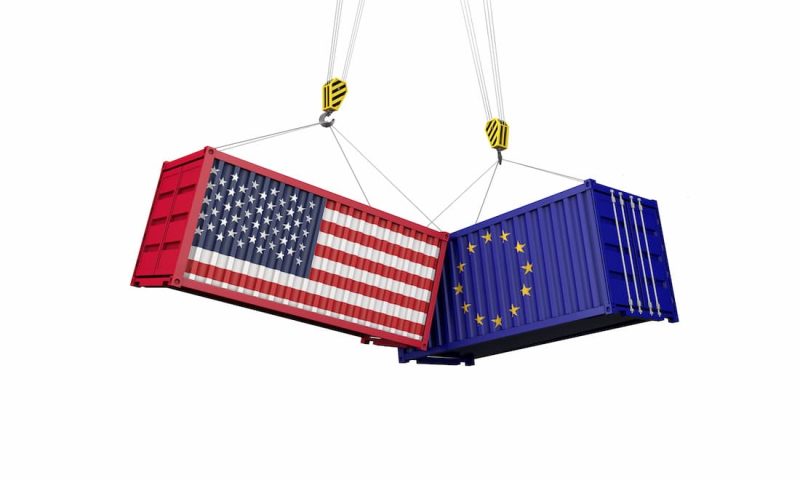Freshfel Europe expresses its deep concern about this trade deal and the process that has accompanied it. Beyond the potential impact or benefit in trade terms, this agreement raises serious questions regarding fundamental principles of international trade.
The President of the European Commission returned from Scotland with a unilateral and fully asymmetric agreement, with concessions that jeopardize the principle of reciprocity. This questionable initiative was presented to European businesses after a negotiation process that violated basic principles of good governance, sidelined the commitment to transparency by failing to conduct prior meaningful stakeholder consultation, and lacked a credible impact assessment. Moreover, the agreement significantly weakens the WTO, eroding the principle of the Most Favoured Nation (MFN) clause and other multilateral rules, while undermining the integrity of future bilateral trade agreements.
Fruit and vegetables as bargaining chips
In this context, Freshfel Europe expresses its deep concern and firm opposition to the EU–US trade agreement, currently in the implementation phase. Although representing only a limited share of bilateral trade between both regions, fresh fruit and vegetables are once again being used as bargaining chips to achieve other objectives, leaving European businesses in the sector exposed to disproportionate tariffs and an imbalance in non-tariff conditions. This will further widen the already existing trade deficit.
Philippe Binard, General Delegate of Freshfel Europe, stated: “Under the proposed agreement, imports of fruit and vegetables from the US into the EU are fully liberalized, with immediate removal of existing tariffs to reach full duty exemption. By contrast, European exporters face a significant tariff increase, up to 15%, to access the US market.”
This stark asymmetry grants a competitive advantage to US producers interested in exporting to the EU, while severely undermining the competitiveness of European fruit and vegetables in the US market. Although the additional duties will ultimately fall on US consumers, over time they will limit the volume of EU produce exported. The EU’s discriminatory decision to grant a full duty waiver for US fresh produce imports may also prompt other third countries to request similar concessions from the EU under the MFN clause.
RELATED NEWS: Spanish exports increase in value by 9%
At the same time, while the EU has declared its readiness to address US concerns on “non-tariff barriers” and other climate- and sustainability-related matters, there is no clear and firm commitment from the US to resolve longstanding Sanitary and Phytosanitary (SPS) measures that for decades have blocked or limited EU exports of apples, pears, citrus, tomatoes and many other products. Philippe Binard added: “Excessive US SPS rules continue to keep EU fruit and vegetables out of the US market, while US exporters could gain broader access to the EU.
The agreement also creates conditions for unfair competition, as European operators must comply with strict sustainability, climate and food safety requirements —such as CSRD, CDDD or PEFCR monitoring— while US and other non-EU suppliers are granted much greater flexibility or even derogations on social or climate transition obligations. This decision completely undermines the credibility of the EU’s sustainability agenda and the competitiveness of European businesses.”
Reduced revenues for the EU
The EU’s tariff concessions also entail major collateral effects for EU finances. The dismantling of tariffs on US products will reduce EU own revenues by an estimated €12 billion annually. Philippe Binard warned: “This will add further pressure on the EU budget, already facing multiple cuts, harming European businesses and EU citizens. In the recent debate on the upcoming Multiannual Financial Framework (MFF), we already saw the far-reaching consequences of budget cuts for agriculture and the lack of resources to adapt activities to climate change or to promote a more sustainable and healthier diet.”
Just a few months ago, the European Commission considered agriculture essential for food security. Last July, the President of the Commission completely overlooked her commitments to EU agricultural competitiveness, to tackling climate change, and to responsibly managing the EU’s financial resources. The agreement was presented as a way to bring predictability and stability, both essential for long-term business planning and investment. However, at first glance, it generates greater uncertainty, leaving the EU at the mercy of its counterpart, which is already threatening to seek further concessions from its weakened partner. This is already happening with the Digital Markets Act.
Freshfel Europe calls for wisdom from EU policymakers in both the Council and the Parliament to reject this one-sided agreement and urgently seek fully reciprocal, non-discriminatory and fair market access conditions that are equally beneficial for EU operators. Otherwise, the EU’s sustainability commitments and its credibility on the global stage will be seriously compromised.


















